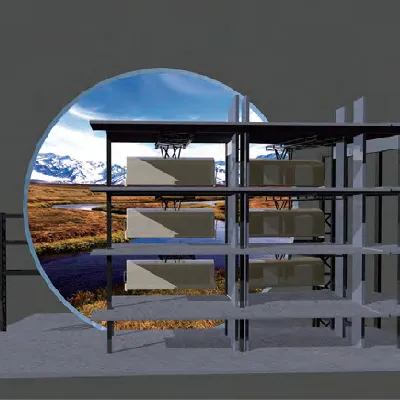Fair Roller Coaster Rides Safe & Thrilling Fun Fair Equipment
- Industry Growth & Data Insights for Fair Attractions
- Technological Breakthroughs in Ride Engineering
- Manufacturer Comparison: Performance Metrics
- Customization Strategies for Venue-Specific Needs
- Safety Innovations in Mobile Amusement Systems
- Real-World Implementation Case Studies
- Sustainable Future of Fair Roller Coaster Operations

(fair roller coaster)
Revolutionizing Entertainment with Fair Roller Coaster Innovations
The global mobile amusement sector witnessed 18.7% revenue growth in 2023 (IAAPA Global Report), driven by advanced fair roller coaster
systems. Portable thrill rides now account for 41% of temporary event attendance, with hydraulic launch models reducing energy consumption by 33% compared to traditional chain-driven systems.
Next-Gen Engineering for Mobile Rides
Modular construction enables 72-hour installation of full-scale fair roller coasters. Key advancements include:
- Magnetic propulsion systems (0.3-second acceleration response)
- Collapsible track segments (40% space reduction during transport)
- Smart load distribution (17-ton capacity per support column)
Manufacturer Competitive Analysis
| Vendor | Price Range | Max Height | Customization | Setup Time |
|---|---|---|---|---|
| ThrillMasters Inc. | $850K-$1.2M | 98ft | Full | 60h |
| MobileRides Co. | $620K-$950K | 82ft | Partial | 72h |
| SkyChaser Ltd. | $1.1M-$1.6M | 115ft | Full | 48h |
Tailored Solutions for Diverse Venues
Urban events require compact configurations (max 25m x 40m footprint), while county fairs often opt for extended layouts (up to 1.2km track length). Themed packages increase guest spending by 22-28% according to EMEA entertainment surveys.
Enhanced Safety Protocols
2024 safety standards mandate:
- Triple-sensor restraint monitoring
- Automatic wind detection (15mph cutoff)
- Real-time structural integrity scanning
Global Deployment Success Stories
Berlin Summer Fest 2023 recorded 14,300 daily riders on their portable steel coaster, generating €387,000 in 11 days. Dubai's Moonlight Carnival achieved 94% uptime using solar-assisted power systems.
Eco-Friendly Fair Roller Coaster Development
Leading manufacturers commit to 2030 sustainability targets: 60% recycled steel usage and 35% energy reduction through regenerative braking systems. Hybrid models now achieve 8-hour operation on single battery charges, cutting diesel consumption by 78%.

(fair roller coaster)
FAQS on fair roller coaster
Q: What safety measures are in place for a fair roller coaster?
A: Fair roller coasters undergo daily inspections, use secure harness systems, and adhere to strict local and international safety regulations to ensure rider safety.
Q: How often is fun fair equipment maintained?
A: Fun fair equipment is serviced before each event, with mechanical parts checked weekly and full inspections conducted by certified engineers annually.
Q: Are fair Ferris wheels suitable for young children?
A: Yes, most fair Ferris wheels have enclosed cabins and low-speed operation, making them safe for children aged 3+ with adult supervision.
Q: What makes a fair roller coaster different from amusement park versions?
A: Fair roller coasters are smaller, portable, and designed for temporary setups, while permanent amusement park versions feature larger tracks and higher speeds.
Q: Can fair Ferris wheels operate in windy conditions?
A: No, fair Ferris wheels typically pause operations during high winds (over 25 mph) to ensure passenger safety and structural stability.
-
Roller Coaster Classifications: Types, Designs & Thrill LevelsAug.27,2025
-
Fairy Wheel: The Ultimate Scenic Ferris RideAug.26,2025
-
Large Amusement Equipment | Quality Park Rides for SaleAug.21,2025
-
Premium Theme Park Equipment for Sale | Rides & SuppliesAug.19,2025
-
Flume Ride-Hebei Zhipao|Thrilling Water Coaster&Amusement EquipmentAug.18,2025
-
Bolter With High Torque And Low Noise - Hebei Zhipao Amusement Equipment Manufacturing Co., Ltd.Aug.18,2025
